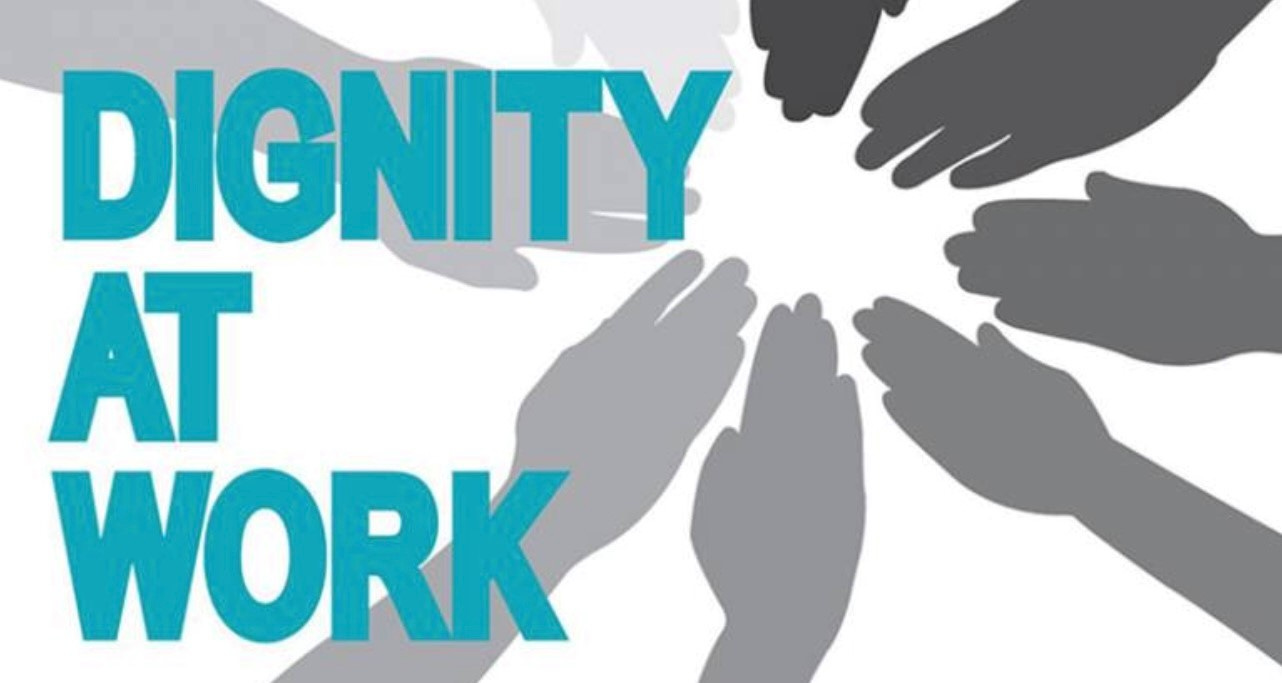Elevating the concept of dignity and what it means in relation to respect can help us create positive cycles of change. When we clarify the distinction between dignity and respect, we see how they work together to achieve a refreshed perspective in guiding every workplace action, experience, and social interaction.
Dignity - Our Human Foundation
Dignity is a concept that helps us transcend all our differences and ensure that we never encumber others with self-doubt or weight that would hold them back. Dignity is the central notion for human rights and is rooted in the belief that all humans share equal value and worth. In promoting dignity, we put our shared human identity above all else. It’s the recognition that everyone has a deep, human desire and right to be treated as something of value and worth.
Each human who shares the experience of being born a human being is given an inherent, equal, and absolute set of rights. Our job in being a member of humanity is to protect, honor and nurture each person’s right to dignity. It’s engrained in the human genome that when we look at any person they are entitled to be recognized and accepted. It means that we fight to ensure that all feel included and operate within environments of safety, trust, empathy, and fairness. No matter how dark a person’s situation may become, the idea of treating each person with dignity can never be negotiated. Dignity is the core attribute that comes with being human, and there is no relativity to dignity. It enjoys no rank or position in society. So, for those who want to progress the human condition, embrace the fact that dignity cannot be earned, lost, or diminished. It’s our shared intrinsic and unconditional way of recognizing our common humanity.
Respect - Our Motivation for Behavioral Change
Many people use the terms dignity and respect interchangeably, but dignity is not the same as respect. Human dignity holds as a given, while respect is fluid and is earned or lost through one’s actions, choices, and behaviors. Dignity is the foundation of our work, and respect is the foundation of our growth. Respect is based on admiration for someone’s knowledge, skills, traits, actions, or accomplishments. Respect is an intimately personal and internalized assessment based on how you perceive another. Often the level of respect you have for someone is based on the relationship you have or have not established and the frame of dignity you have applied.
The trap with respect is that it’s subjective. Our assessments can often be wrong, misguided or fail to factor in the unknowns when people fall short of meeting our expectations. The attributes of dignity, such as acceptance, empathy, and trust, provide the rungs in the dignity ladder. When we promote dignity centric relationships, we focus on lifting people up with opportunities for redemption and in building the confidence to inspire them to grow into their better selves. The respect we earn in life and work come down to how we choose to consistently respond to ever-present sources of incoming stimuli. While self-respect is ours to own, the respect that others form for us comes down to how they choose to judge our actions in the context that they see.
Unleashing Your Dignity Respect Cycle
Life is a constant journey to bring out the best of who we are in everything we do. Our role as humans is to become increasingly competent in modeling the attributes associated with human dignity and building dignity-centric skills across our communities. This means embracing a daily practice of promoting dignity for all. Beyond our daily practice, we should aspire to serve as role models in recognizing and accepting everyone and doing our part to create the highest levels of safety, trust, empathy, and fairness. Environments of absolute dignity are free from judgment, promote psychological safety, build self-esteem, and ultimately work to lift others up.
Practicing dignity works in tandem with earning respect to promote a positive cycle for change. Those that promote dignity earn the respect of others and those that feel greater levels of dignity have greater self-efficacy to achieve new levels of growth and behavior change that in turn earns the respect of others.
Brent A. Kedzierski is Chief Learning Officer at HumanWRKS. Brent’s focus is on improving the human condition at work … one experience at a time. Brent is also a Board member of the National Workplace Bullying Coalition and serves as the Strategic Advocate for Industry Outreach and Education.




